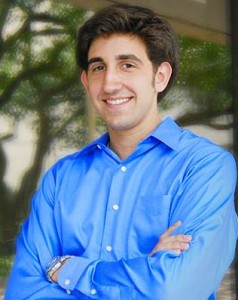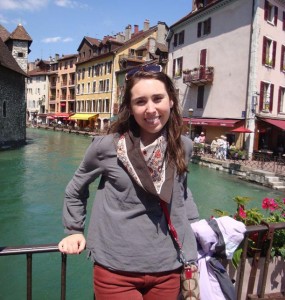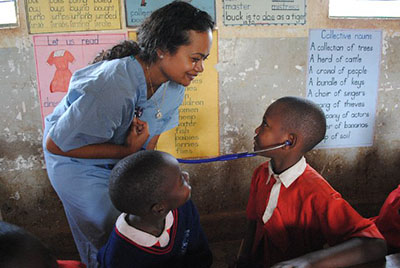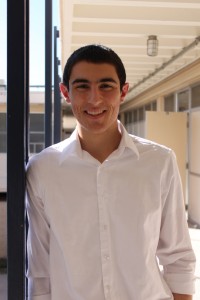 Arthur Li, BHP class of 2006, is Head of Business Finance and Administration for Altamarea Group, a highly respected and industry recognized restaurant group in New York City comprised of Marea, Ai Fiori, Costata, Osteria Morini, Nicoletta, and The Butterflyin New York City; Osteria Morini and Due Mari in New Jersey, and Al Molo in Hong Kong. Arthur graduated with degrees in BHP and Plan II, and earned his MPA the following year. We recently spoke to him to find out more about Altamarea Group and his role there.
Arthur Li, BHP class of 2006, is Head of Business Finance and Administration for Altamarea Group, a highly respected and industry recognized restaurant group in New York City comprised of Marea, Ai Fiori, Costata, Osteria Morini, Nicoletta, and The Butterflyin New York City; Osteria Morini and Due Mari in New Jersey, and Al Molo in Hong Kong. Arthur graduated with degrees in BHP and Plan II, and earned his MPA the following year. We recently spoke to him to find out more about Altamarea Group and his role there.
Tell me about your career path leading up to what you are doing now.
During my 5th year I was working for J.P. Morgan in Austin in the investment banking group with restaurant industry focus. After graduation I stayed on with the same group. I was fascinated by the restaurant industry and loved food, but knew I wanted to work in finance, so this opportunity combined both perfectly, and I got to stay in Austin. After a year, I transferred to J.P. Morgan’s consumer retail investment banking coverage group in New York. In November 2008, I moved on to Wasserstein & Co., a middle-market private equity firm. I spent two years there, and got some really great experience and got to learn more about other industries. But I was working 80-100 hours a week and starting to feel a little burnt out.
In 2010, I decided to do something new and different and started to explore something in the restaurant industry. I started looking at smaller restaurant groups in New York and other ways to get into the industry. I had always been reading the food blogs and keeping track of the hot restaurants in the city. One day, I came across a New York Times article on Altamarea Group. It was the first time I heard about the group, but after reading the article, I knew this could be my dream job. One of the owners, Ahmass Fakahany, who was previously the CFO of Merrill Lynch, had made the jump into the restaurant industry like I wanted to do. I figured if the group was growing that rapidly, maybe they could use an extra finance person. With nothing to lose, I emailed the generic jobs email address letting them know my interest in joining the group, and within days, Ahmass reached out to me. We had a few meetings, then the day before Thanksgiving, he offered me a position as Head of Finance for Osteria Morini. A year after joining Altamarea Group, I was promoted to serve as Head of Business Finance for all of the restaurants in the group. I currently manage a team of seven who perform day-to-day book-keeping, accounting, operational finance and administrative activities. I also work closely with senior management in growing the company, both organically at each of our current locations and through new restaurant expansion.
What appealed to you about Altamarea Group?
The group is entrepreneurial. We are building the business from the ground up. It is a very different scene, which I love. I traded Park Avenue for Soho. I have a lot of room to mold and shape the strategy of the group. I get to work with the best of the best in the industry and interact with GMs and chefs. I work with so many kinds of different people, which I love. I enjoy getting to see all aspects of the business – HR, operations, business development, construction. Plus, I get to call Chef Michael White, a multiple Michelin-starred, James Beard award-winning, and Relais & Chateaux chef, my boss.
What are the challenges and rewards of working in the restaurant industry?
In banking and private equity, we were able to move so quickly, because that is the nature of finance. It is not the same pace in the restaurant industry. The vendors we work with don’t move at that pace, so there are always road blocks and delays. It is definitely a challenge to move at a slower pace, especially when we are trying to execute such an aggressive growth strategy. There are also a lot of different personalities to manage, which can be exciting but also admittedly challenging at times. On the flip side, when our restaurants are successful as they are, that is the most rewarding feeling. When our clients are happy, we are happy. I work with all our chefs and GMs to figure out how we can maximize not just the top-line but our profitability as well. I literally go down every line item of the P&L to figure out how we can spend less to make more. It is also very rewarding when we open a new restaurant. I treat all our restaurants as if they are my children. Every new restaurant we open is like having another baby for me.
What is the growth plan for Altamarea and what role will you play in that?
We currently operate seven restaurants now, and we are excited to be opening six more this year – two in New York, one in New Jersey, and one in Washington DC. We are also opening a new concept in London next month, which is truly exciting. No two of these restaurants are the same concept, which makes it challenging but fun at the same time. Beyond 2013, we are actively looking at other markets for expansion, including Los Angeles and Asia. We feel like we have a lot of growth in front of us.
I work very closely with Ahmass and Michael, as well as our media relations, business development and legal teams, and play a role throughout the entire opening process, from lease negotiations, capital budget planning, design and construction, to opening. When we are opening so many restaurants so quickly, it is extremely important that we are managing our cash flow optimally. This falls squarely on the finance team’s shoulders.
How did you learn all of the elements of your job that you didn’t already know?
I am a relentlessly hard worker and will do as much as I can as best as I can to figure something out. A lot of it is just problem-solving, which I learned a lot of from BHP. I started with a good knowledge base and have been able to learn throughout my career the other aspects of managing a business and managing people. If you are smart, a hard worker and know how to work well with people, you will do well. Attention to detail and organization are also very important. I juggled a lot in college, so I feel like I learned a lot of these soft skills during that time. Problems, emergencies, dilemmas are so common in the restaurant business, it is important as a leader to remain calm and rational so we can figure out how to put out the fires.
In what other ways do you feel BHP prepared you for your career?
I was really into BHP when I was a student. BHP classes were my favorite. I was a recruiter, peer advisor, and a TA for BA 101H. I have realized over the course of my career that group projects and cases were very valuable experiences. I have been able to problem-solve and manage people better because I had a head start on this in college due to the interactive nature of BHP classes. Also, my focus on networking and getting involved put me ahead and helped set me apart in my job search.
What advice do you have for current students?
Regardless of whether they plan to go into finance, something finance-related, or even a non-finance career, accounting is a really important skill to have. I oversee the finance team, and when we are hiring junior people, a candidate with accounting background automatically stands out. Take your accounting classes seriously even if you don’t pursue this as a major or career because that knowledge will set you apart and will prove to be useful down the line in life. Also, take advantage of being part of a small cohort within the BHP community and get to know as many people as you can. Coming to New York, I knew a lot of people in New York who were BHP, and our worlds frequently collide. It is great to have that BHP connection, especially when we are so far away from Texas.





